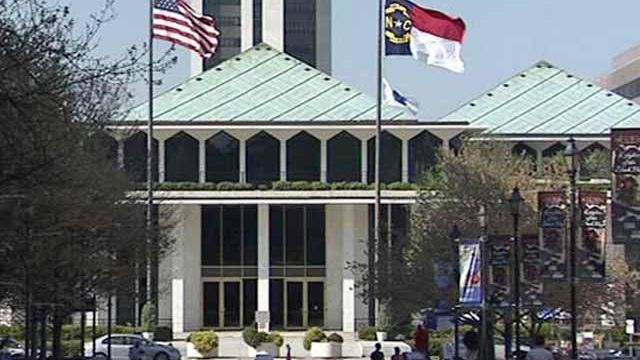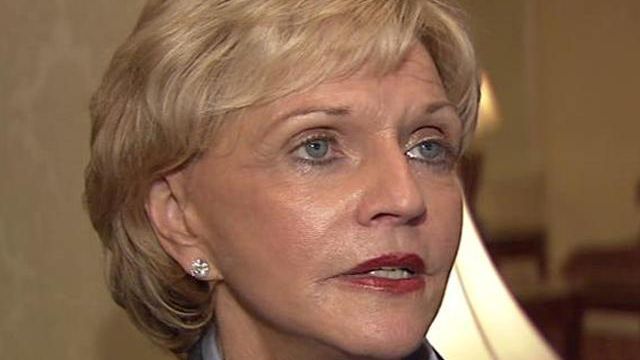Election euphoria shifts to task of governing
A day after ending more than a century of Democratic control in the General Assembly, state Republican leaders began working on their transition to power and addressing the challenges facing North Carolina.
Posted — UpdatedThe GOP picked up 11 seats in the Senate, flipping a 30-20 Democratic majority to a veto-proof 31-19 Republican majority. It marks the first time since 1898 that Republicans control the Senate.
In the House, Republicans hold a 66-50 edge, according to unofficial results, with four races too close to call. Democrats had held a 68-52 majority in the House in the last legislative session.
If all four close races fall to the GOP, the party would also have a veto-proof majority in the House. Republicans last controlled the House 12 years ago.
"I think (voters) sent a strong message that they want different governance in North Carolina, particularly with the economy, jobs and more fiscal responsibility," state Republican Party Chairman Tom Fetzer said Wednesday.
House Minority Whip Thom Tillis said Democrats grew the state budget too fast even in the face of a slow economy.
"It was clear to me in last year's legislative cycle that they went with a much broader legislative agenda," said Tillis, R-Mecklenburg, a potential candidate for House speaker.
"Part of what we're going to have to do is probably make much deeper cuts in this cycle because of the lack of cuts in past cycles," he said. "You will see things in the legislature that we probably haven't seen for decades – legitimate, sad stories about people who may end up suffering as a result of some of the things we have to do."
Fiscal analysts have projected that the state budget will be more than $3 billion in the hole next year, and Republican leaders said they would close the gap without raising taxes.
"We need to do the honorable thing and live up to our promises," Tillis said. "Everything we give to people, we are taking from someone else, and we've just got to make those tough decisions and try to get the balance right."
Fetzer said the budget cuts will take finesse and courage, but he said the GOP leaders in the House and the Senate have the experience to pull it off.
"They're inheriting a budget that's in shambles ... (but) they've committed to balancing the budget without raising taxes," he said.
Senate Minority Leader Phil Berger, who likely will become the next Senate president pro tempore, said late Tuesday that the GOP envisions a $16 billion to $17 billion state budget next year, down from the $19 billion budget that lawmakers passed in June.
Still, Berger and other top Republican lawmakers said that they would work with Democratic Gov. Beverly Perdue to draft a budget that everyone can accept.
"Our chief executive has an obligation to figure out how to make this work," Tillis said. "We have a historic opportunity, and hopefully, both sides will step up to the challenge."
Perdue said Wednesday that she is looking forward to a bipartisan effort.
"Obviously, we're not going to agree on everything, but I think the people of North Carolina are going to be very, very eager to see we'll agree on most of the big things," she said.
The governor said she's already told her budget staff to provide the GOP leadership in the General Assembly with any data they need, and she has offered to meet with lawmakers later this month to discuss budget priorities.
Perdue also joked that she's had plenty of experience working with Republicans.
"I'm married to a Republican, who gave me an independent registration for a wedding present or my first Christmas present," she said.
Tillis said the key for success is to depoliticize the issues and focus on a simple set of principals.
"How (do) we get more people back to work? How (do) we get money back in the private sector, and how (do) we get North Carolina's government out of people's lives?" he said.
In addition to the budget, state lawmakers must take up redistricting when they reconvene in January. They will use information from the 2010 census to redraw the boundaries of political districts in both the General Assembly and for North Carolina's 13 congressional districts.
The new districts could influence elections over the next 10 years.
"Republicans just want fair and legal boundaries, boundaries that are contiguous and consistent and not a crazy-quilt patch of gerrymandering," Fetzer said.
The U.S. Department of Justice will have to approve all new redistricting maps to ensure that minority voting rights aren't violated, and Fetzer said that would provide a good check on "any political tendencies (getting) carried away" since the federal agency is overseen by the Democratic administration of President Barack Obama.
• Credits
Copyright 2024 by Capitol Broadcasting Company. All rights reserved. This material may not be published, broadcast, rewritten or redistributed.






